Bushwick Flower Stalls Create Hubs of Peace, Small Business Opportunities for Local Immigrants
Bushwick’s immigrant florists have found a foothold growing small businesses on the side of the neighborhood’s groceries and play an important role in the community.

Saul Quizat sells flowers, plants, and handicrafts from his town in Mexico. Photo by Anna Bradley-Smith
It’s 8 a.m. on an overcast Bushwick morning. The J train rumbles overhead. A man asks for change at the entrance to the Kosciuszko Street subway station as a woman scurries past, coffee in hand.
Saul Quizat is carrying flowers from the basement under Mini Deli Mart bodega, near the corner of Broadway and Kossuth Place, into his store tacked onto the side of the deli. He stacks rows of flowers, positions houseplants, and gets ready for the day ahead.
More roses make up the bouquets than usual, leftovers from a recent holiday. Occasions such as Valentine’s Day and Mother’s Day are some of the busiest days of the year for local florists, Quizat said.
Between the hours of 8 a.m. and 10 p.m., you can find Quizat at his store, seven days a week. After moving to Brooklyn from Guerrero in Mexico 10 years ago, and after a time working as a delivery driver that ended in an accident that required multiple surgeries, he decided to fulfill his dream of opening a flower store. “I was scared of working on the street and risking my life between the cars.”
Quizat had some experience working with flowers, having tried to open a store in his small mountain town in Guerrero. However, he said, with the gang violence and the money they demanded, it wasn’t possible. The situation, he said, displaced him from where much of his family still lives.
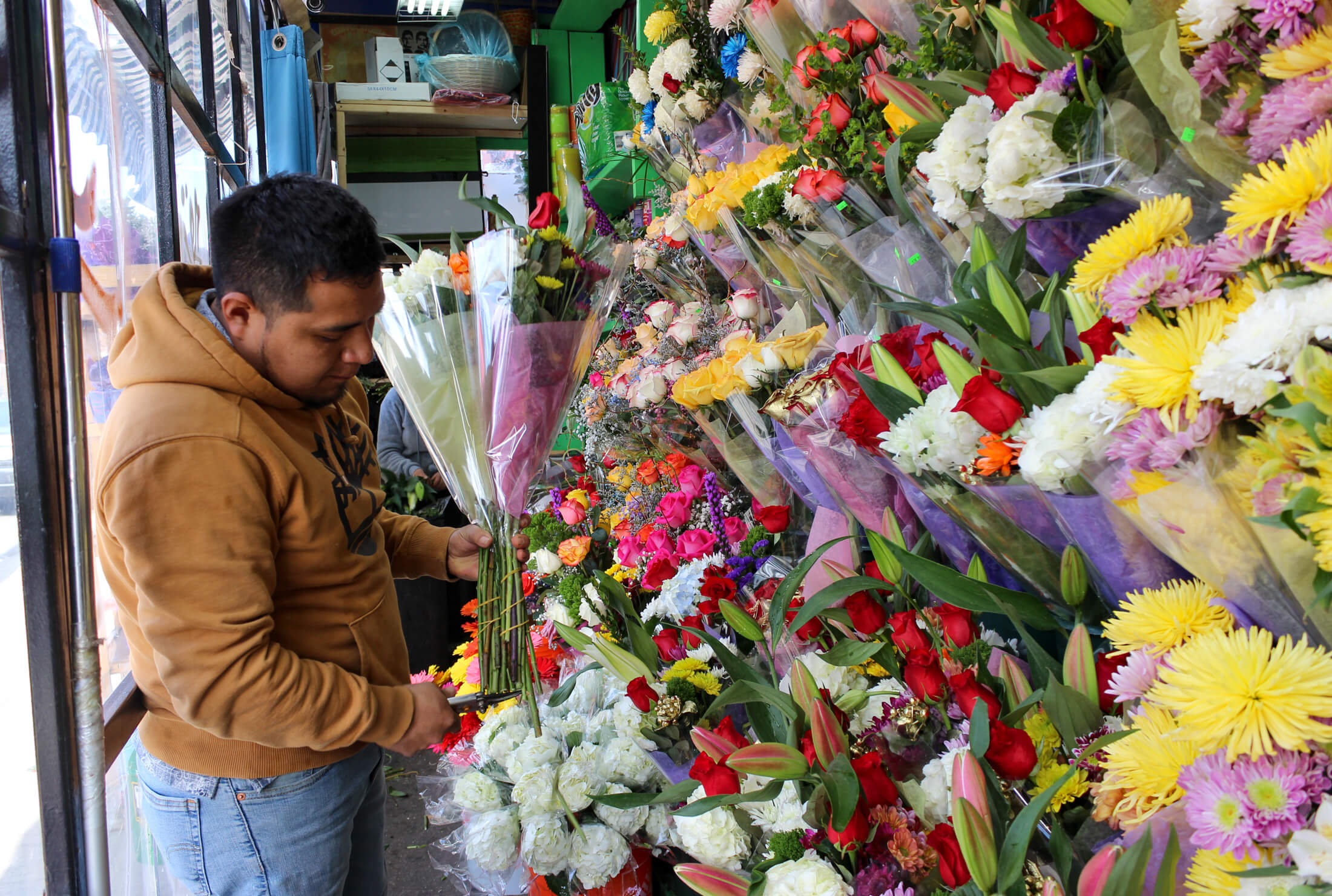
Quizat is one of the many flower and plant store vendors in Bushwick who have come from Central and South America and found a foothold growing small businesses on the side of the neighborhood’s bodegas and supermarkets. Walk through the area and you’d be hard pressed to find one of the small florist shops being run by someone who hadn’t immigrated to Brooklyn.
The small businesses are valuable rungs on the city’s economic ladder for the entrepreneurs who often work long hours seven days a week to make a living and support their families and communities, both here and back home. At the same time, they build relationships with old and new neighbors and support them in their times of need with the joy of fresh flowers and leaves.
But, aside from the community they build with family and neighbors, many of the flower sellers operate without much formal support. During the pandemic, that was made apparent, with none of the several florists Brownstoner spoke with receiving any government or nonprofit business aid during the pandemic, nor at any other time. While some said the pandemic bought a steady stream of customers, namely mourners, others said they were forced to close down for periods of time and had no financial support for the duration.
“We didn’t get any financial support, we had to survive with our own means. It was hard but we were able to survive,” Quizat said. “Indigenous people were the most affected, indigenous from all Central and South America, because there was no source of information that made it to where we are…there are a lot of us who live in the shadows.”
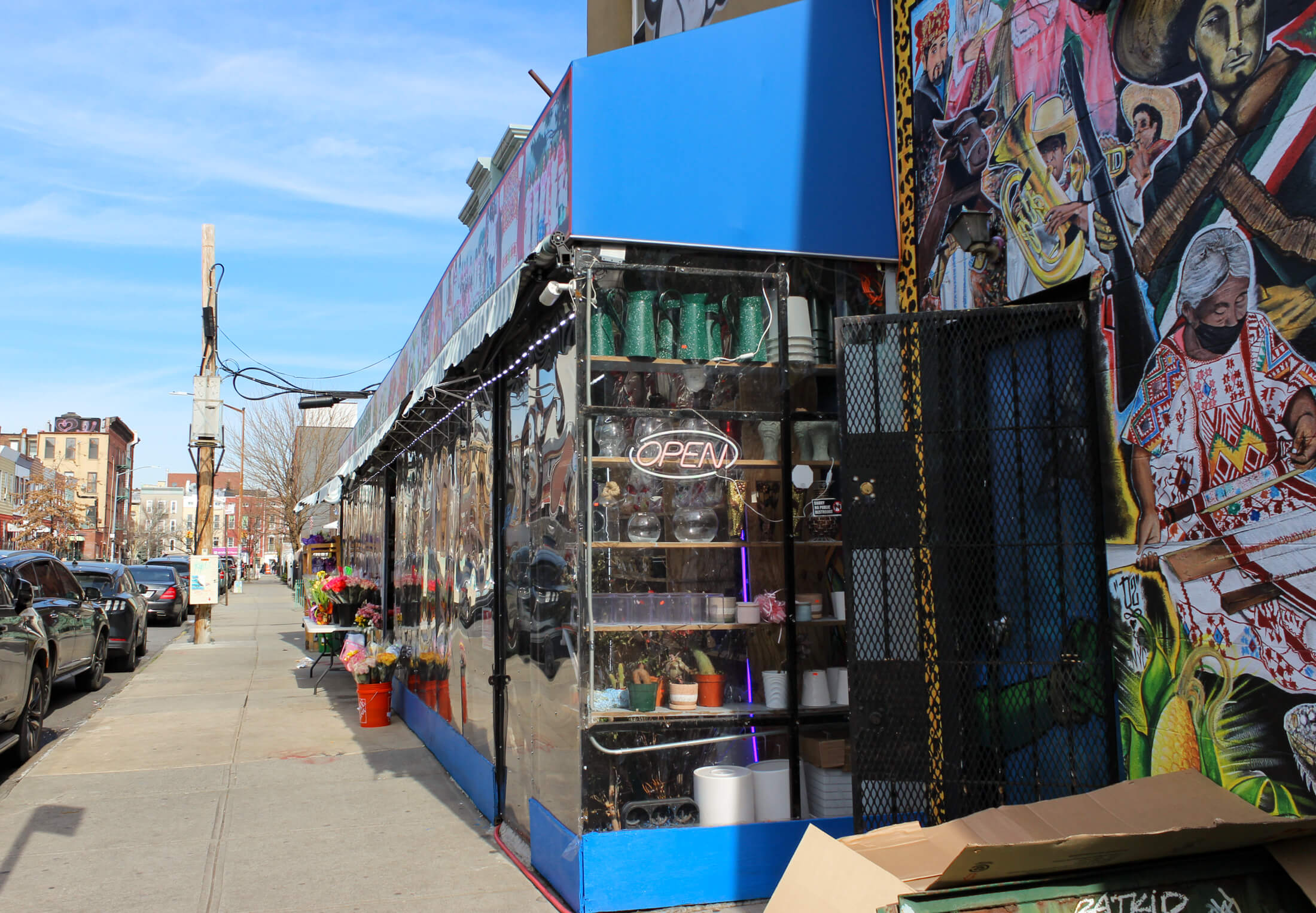
Learning the art of flowers and business
Inez Teco, who operates the flower store on the corner of Wyckoff and Dekalb avenues, took it over from her brother-in-law, Crescenciano Garcia, during the pandemic. He passed away two years ago, after having run the flower store for eight years.
Teco said Garcia arrived in the U.S. from Mexico when he was 16 and started working in restaurants until he got an injury that meant he was no longer as mobile. Without sick pay or any leave, he had to look for new work. Garcia started selling bouquets of flowers on the street until he eventually raised enough money to rent some street space from a local restaurant and open a store.
During the pandemic, Garcia got hit hard by Covid and had to close the store for a few weeks and stay at home. “He was out of breath but he didn’t want to go to the hospital so he stayed home for two weeks and closed for two weeks, got no help for anyone, nothing,” Teco said.
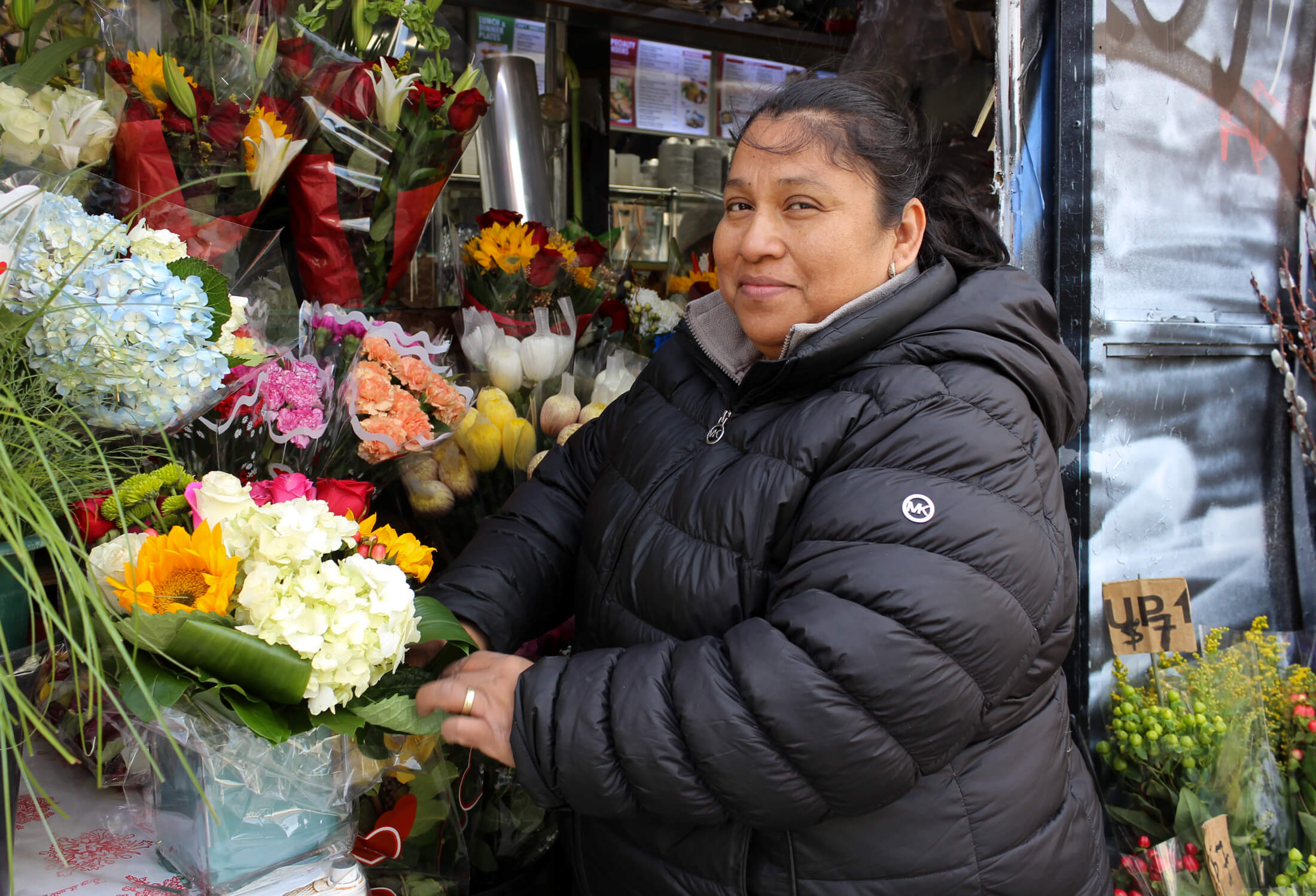
When he recovered, he reopened the store, but not too long after he got sick again with a different illness. When Teco and her husband, Garcia’s brother, asked if he wanted them to take him back to Mexico, he said no. “He didn’t have a wife or any kids, he only had us, his sister-in-law and his brother. We were very close, we were like a family,” said Teco. “He asked us to please not take him to Mexico, he didn’t want to go to Mexico. He would always say he was from Bushwick so he wanted to stay here.”
Teco, who had been working for more than a decade making food at nearby Santa Ana Grocery & Deli on Irving – another family-owned business – decided to give up that job and take over Garcia’s store to keep it in the family. She had to learn about flowers from scratch, how to make the arrangements, how to keep them alive and, especially, how to keep the store running.
“It was hard because I didn’t know how to do anything with flowers, the only thing I knew was how to make tacos, tortas, quesadillas…I used to grab a flower and I wanted to make it into a taco,” she laughed.
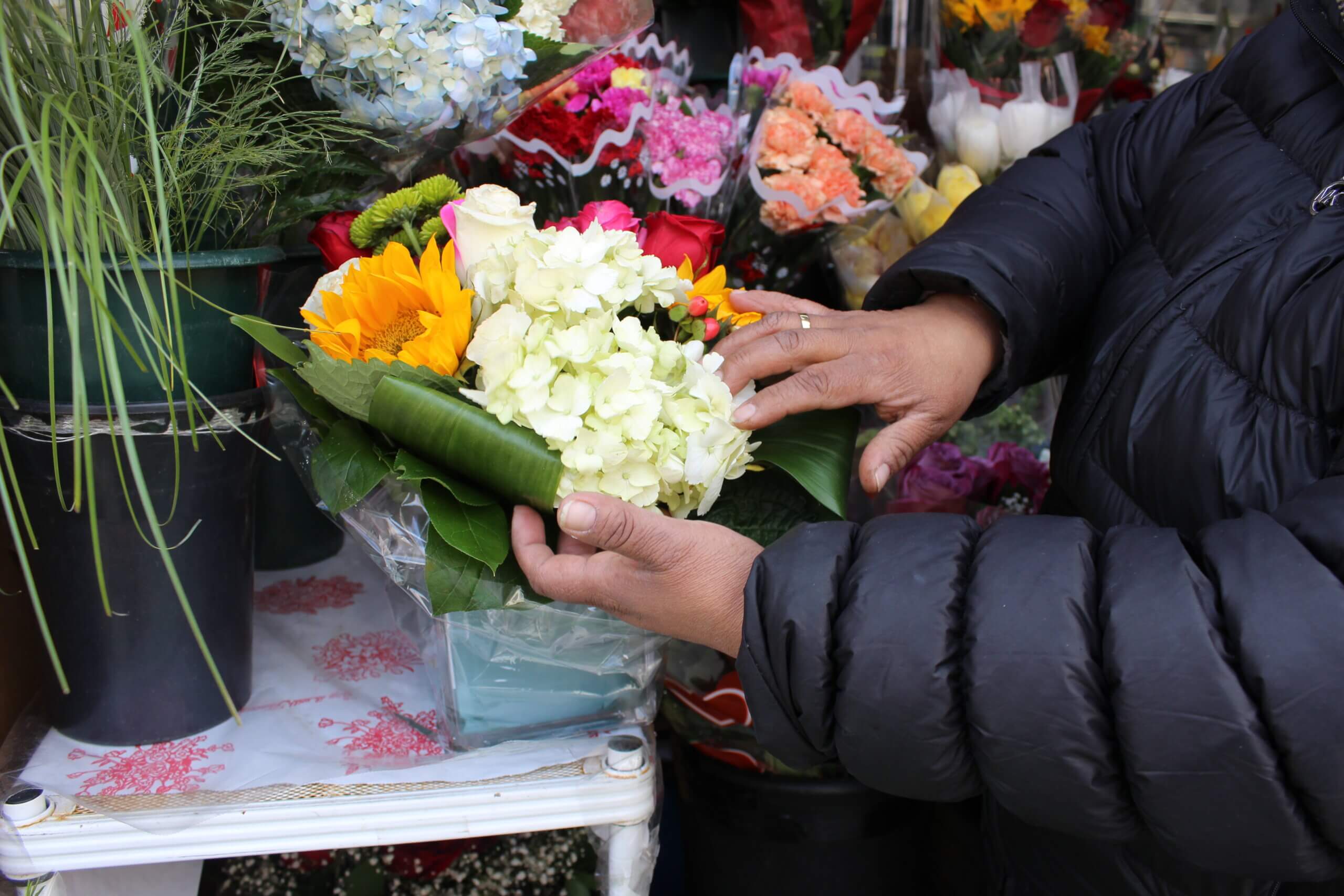
For years Garcia was getting water from the restaurant bathrooms for the flowers, and with only two lamps he would have to close when it was too dark. When Teco and her husband took over, the family installed water and lighting systems. Teco still doesn’t have a fridge for the flowers so she has to store them off site, and that means she has to have someone helping her so she can leave the store to restock. Saving for a fridge is a high priority for the Teco and her husband.
Although Teco said she feels grateful to God she was able to take over the store from Garcia and keep it in their family, there was a lot of sadness that came with taking it on – sadness that someone they love had gone. She said a lot of Garcia’s regulars — “they used to love him” — now come to support Teco and appreciate her, something she is very grateful for.
All the sacrifices and long hours that come with the store are worth it for being her own boss and being able to invest in the flower shop, she said. The family definitely wants to keep the flower store and grow the business, whether that’s at the same site or somewhere else in Bushwick.
A long tradition in Bushwick
Born and raised in Bushwick, Luis Munive remembers the small-scale flower sellers in the neighborhood having mostly immigrated from Central and South America.
Although he said he doesn’t have any real idea of why that is, he thinks it could be related to some migrants having come from more agricultural areas. “My parents immigrated from Mexico and I know for my parents, they came from the countryside, so a lot of the stuff that they were used to doing was a lot more hands-on agricultural work,” Munive, who is now the program director for El Puente’s Bushwick Leadership Center, said.
He added the work could also remind folks of the places they had come from and keep that connection alive. “I think any and all street vendors in the neighborhood, for my parents’ generation, they’re the driving force to connect them back to their culture, to connect them to their heritage,” he said. “They way they set up shop, I know, when I go visit my mom in Mexico, it reminds me a lot of the market areas over there, how all the street vendors are set up…it’s a way to connect their new home to where they came from.”
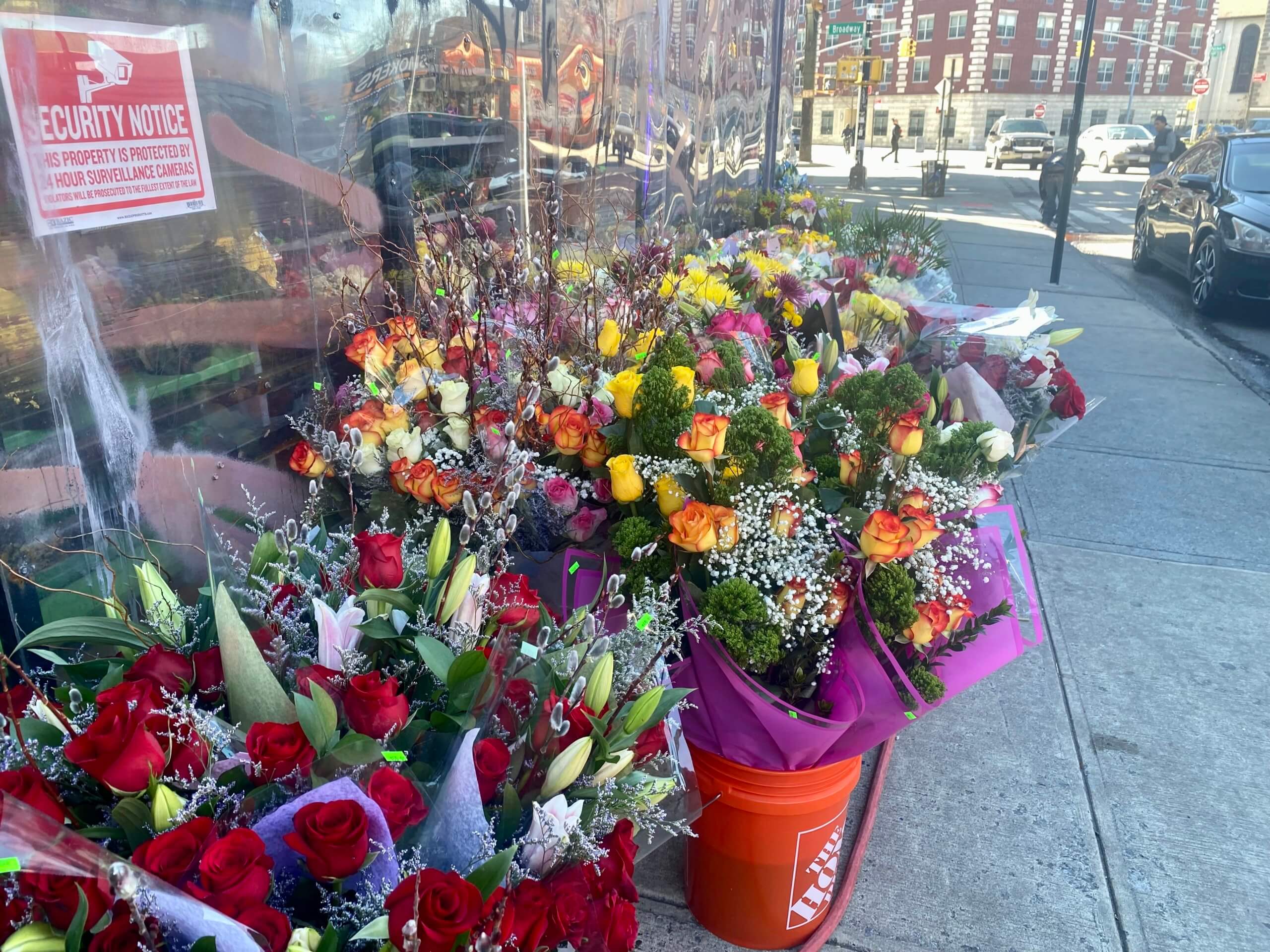
El Puente, which typically focuses on community development with youth in Williamsburg and Bushwick, started to expand who it works with during the pandemic after seeing the amount of need in the area. Munive said many adults weren’t aware what help was available to them through opportunities like the Excluded Workers Fund, and many didn’t find out until too late, and some still didn’t qualify.
In the past few months, El Puente’s Bushwick Leadership Center has begun working with street vendors and those with small businesses on the street, such as the florists, and the organization is currently creating a curriculum to help bring their businesses online.
Munive said currently a big means of communication in the street-vendor communities is WhatsApp group chats. By helping vendors get more tech savvy and set up Instagram and Facebook shops, the nonprofit hopes to help them grow their customer base.
“Anything that we would offer is always open to anyone and everyone in the community, honestly,” Munive said. “Everything that we do is just for the betterment of the residents in our neighborhood, that’s our biggest thing.”
Avenues for support
Brooklyn Borough President Antonio Reynoso, who was also born and raised in the area, in south Williamsburg, said he has fond memories of walking along streets lined with colorful bouquets of flowers and green, growing plants. “It’s amazing the way such small bursts of nature can offer us peace and remind us to be kind to our neighborhoods,” he said. And the pandemic reminded us how much power nature can exert over mental health and happiness, he added.
“When I was a kid, it was always the bodegas and independent vendors who were keeping an eye on us, making sure we arrived safely to school and back home again, and keeping us on the straight-and-narrow. They are the eyes and ears of our communities, and we’ve got to show our love and support right back,” Reynoso said.
Reynoso said that while the pandemic became a time for many to fill their homes with plants and test their green thumbs, it was also a period when “independent flower shops shared and continue to carry the same hardships as many of our other small businesses. Storefronts were closed down, fewer people shopped in our streets, and the financial hardships of Covid-19 cut down on people’s non-essential spending.”
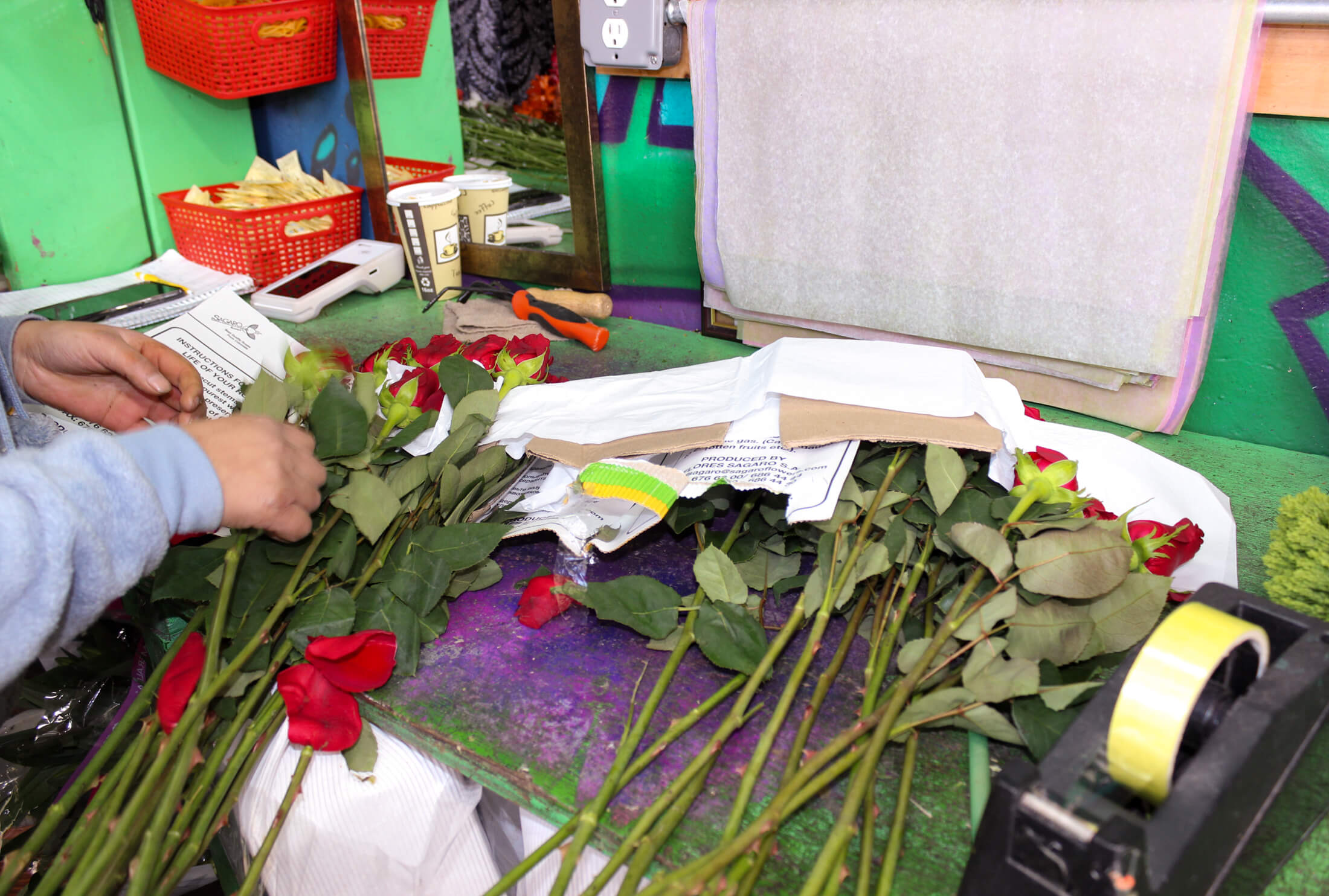
One of his aims as borough president is to find new and creative ways to fortify small businesses in the borough, he said, “not only so that communities can enjoy thriving local economies and continue to shop in their own neighborhoods, but because these businesses are essential to a safe, successful community in a much bigger way.”
An initiative he said could support those types of businesses is the Brownsville small business incubator, which he said he hopes will expand to other neighborhoods. The incubator helps entrepreneurs build strong business proposals and then provides a select group with the real estate they need to get their businesses up and running.
“I’d love to see flower and plant vendors represented in those applications, and if the initiative overall is successful, see it expand into other neighborhoods that could benefit from the same type of support,” he said.
President of Brooklyn Chamber of Commerce CEO Randy Peers said the organization also offers business support programs, including a business basics course offered by Brooklyn Business Solution Center, that would be available to the florists. The center operates the eight-week course in nine languages. “I think the beauty of the program is it really does help an entrepreneur to think through the various steps to sort of getting to launch or to really, you know, improving their current business.”
“These are really grassroots entrepreneurs who are very important to the community. [The flower stalls are] a good sort of first step for a new immigrant coming into the United States. And it enables them to get a foot in the door, sort of get acclimated to the small business culture of entrepreneurship,” Peers said. The stores are also “a first step towards bigger entrepreneurship,” he continued.
However, Peers said, given the often informal nature of the businesses, it can be hard for those running the stores to access traditional help. “They didn’t qualify for some of the standard pandemic connected supports over the last couple of years, and that’s unfortunate.”
Growing the customer base is top priority
On Stockholm Street, Leonel Rodriguez is showing a customer the range of orchids he has at the store and telling her the prices – prices that he said have gone up 30 percent recently due to inflation. On top of inflation, florists have been hit particularly hard by supply chain issues that have made it difficult for them to fully stock their shelves.
“A lot of customers have left, stopped buying,” he said. To cover the price increases, Rodriguez said he has had to take a cut from his profits and increase prices just slightly. Today, the customer did select a plant – but not one of the orchids.
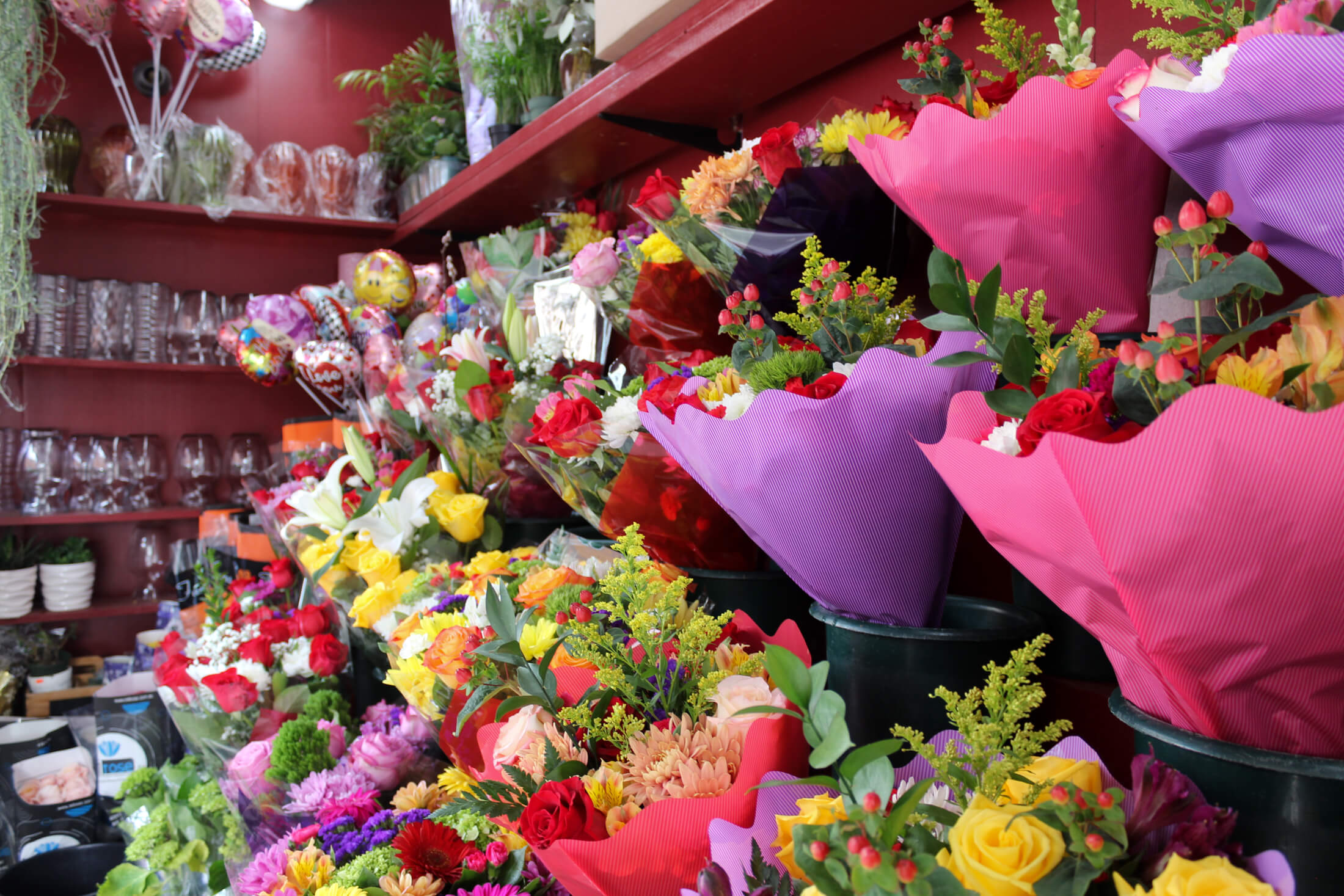
Rodriguez, who operates the flower and plant store with a friend, previously worked in construction, but said as he got older he needed something easier on his body. As a florist, he is able to be creative at work and talk with the wide range of people that come into his store. Those people, he said, keep the business running. “We survive with that, if it wasn’t for the customers, we’d shut down.”
Due to the tragedy unfolding across the road at Wyckoff Hospital during the pandemic, there was a constant demand for flowers and he was able to stay open throughout the lockdowns, he said.
In order to get as much business as possible, Rodriguez and his business partner began accepting card payments through a new Square system. That has helped increase his customer base, he said, adding that if he could ask for any help it would be with promotion to keep those customers flowing in.
Advocating for those ‘living in the shadows’
Quizat has taken on a large advocacy role in the immigrant community, especially for indigenous Mexicans and their rights in New York City. As part of that, he sells goods at the store – including jewelry boxes, clothing, clocks, and much more – made by his family back home in Guerrero and sends the money back to them. Quizat said it is a way to help his local community and keep the economy going: “It’s a project to sustain our communities in the mountains.”
In February, Quizat organized an event at the United Nations headquarters to celebrate indigenous and old languages that was attended by a number of groups that promote and support indigenous rights. And when Mayor Eric Adams was on his campaign trail, Quizat said he came to him to promote the campaign in the immigrant community; in return, Quizat called on Adams to improve services for indigenous peoples.
“Our main intention…is to make us visible, as indigenous people we have been forgotten;…people go to the museums and they love and worship the indigenous figures, but they’re our ancestors – we are the living that are still here.”
Quizat has also talked to the immigration counsel about finding a way to allow immigrants to vote. Many children of immigrants have the right, he said, but their parents do not. In June, a judge nixed a New York City ordinance that would have allowed some legal New York city residents who are not citizens to vote in local elections, saying the rule violated the state constitution. Citizens, including immigrants who become naturalized citizens, can vote.
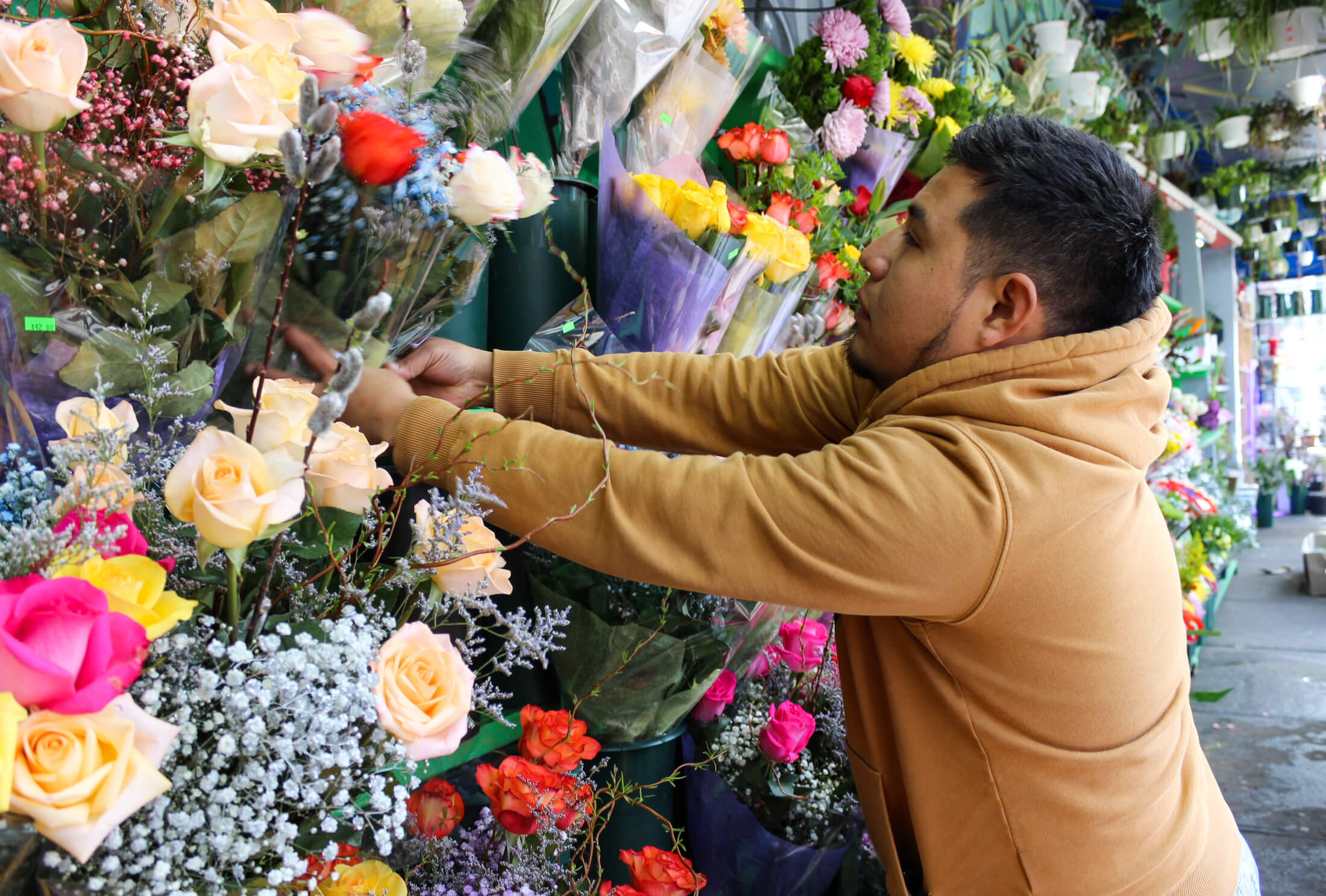
Although the florists who have their stores on the delis are not technically street vendors, some started out selling bouquets on the street before raising enough money to rent a space. Much like street vendors, the florists in Bushwick are neighborhood fixtures who bring vibrancy and life to the street.
Carina Gutierrez, deputy director of the Street Vendor Project, said by becoming street vendors in their own communities, people — often immigrants either new or those who came years ago — are able to stay connected to their neighbors and families who often share ethnic and linguistic backgrounds, and strengthen the community fabric. They also grow local economies by buying their supplies locally, and enhance safety in their neighborhoods – always having eyes on the street and being a reliable figure in the area.
During the pandemic, Gutierrez said, the street vending landscape changed dramatically. With many people out of work, the outer boroughs and especially largely immigrant neighborhoods saw a large increase in vendors. The issue that comes with that is the city’s cap on general vending licenses, which number just 853 citywide. Gutierrez said the waitlist for licensees is in the tens of thousands.
“Unfortunately, the city doesn’t recognize those businesses that popped up as legal businesses and so we’ve seen as things have started to recalibrate after the pandemic, we’ve seen more enforcement happening against street vendors,” she said.
She said there are a lot of lessons the city could learn in its post-pandemic revisioning about how street vendors can operate in public space and “how the city can really catch up to this growth of entrepreneurship our flower vendors show,” she said.
“You really see street vendors, and flower vendors especially, showing how vibrant public space can look. Like seeing the beautiful flowers decorating the street for Valentine’s Day. It’s just such a joy to exist in a city that’s covered in flowers.”
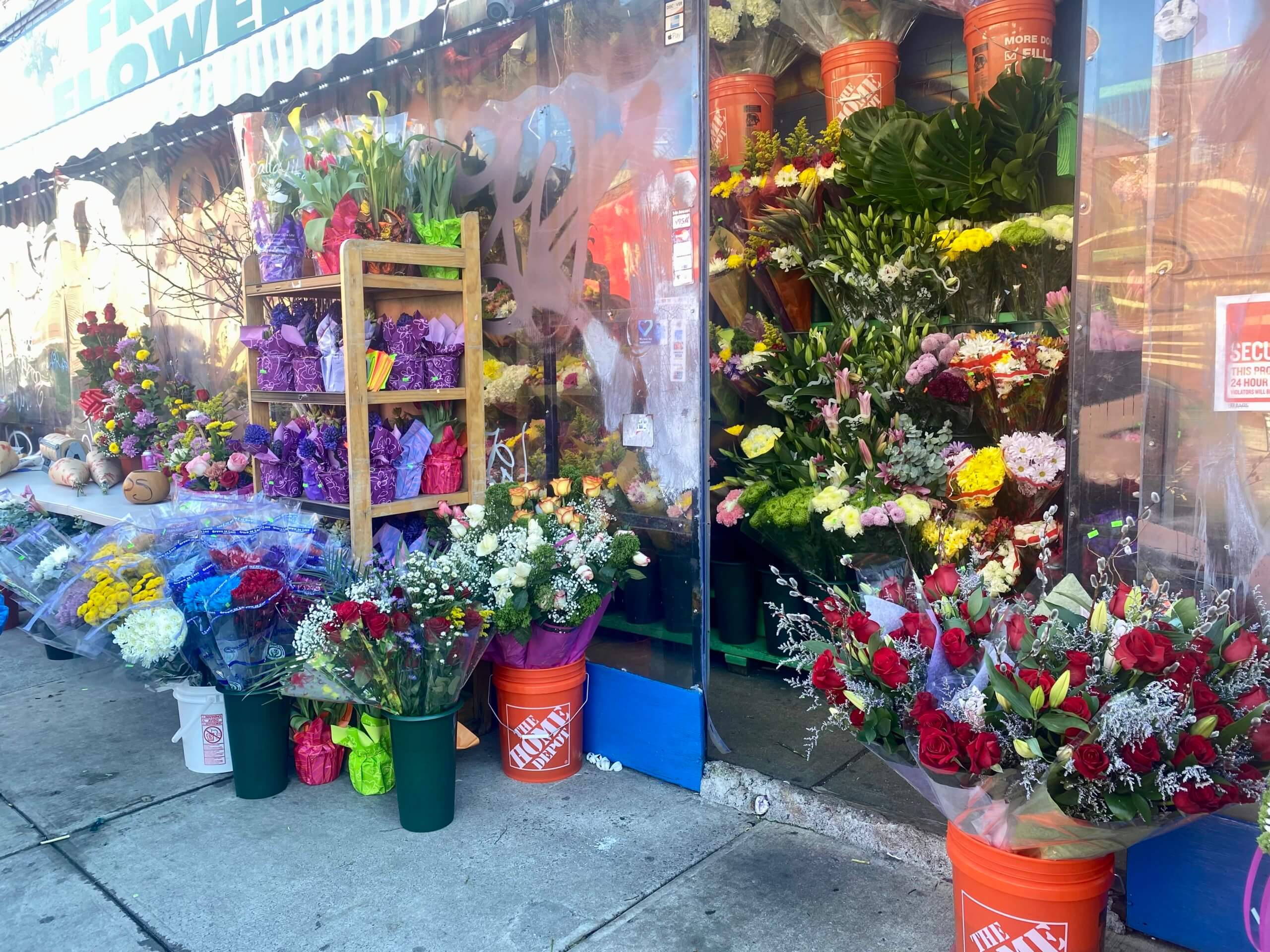
Council Member Jennifer Guiterrez, who represents much of Bushwick, said flower street vendors are an integral part of the community of Bushwick because they create economic opportunities for those who may face barriers to traditional employment. “They both contribute to the local economy, and are also enmeshed in the vibrancy of the culture in the area,” she said.
The vendors who have set up their stores on the sides of bodegas and supermarkets also face challenges with the city. Some vendors told Brownstoner that while they may have been operating for years, they live in fear that their store could be closed at any minute.
For advocates like Quizat, increasing legal rights for indigenous and immigrant communities is a top priority. All the profits he makes from the flower store he invests in his family and back into the advocacy efforts he is working on, he said. There has been some positive response from the city, he conintued. During the pandemic, he was able to help get a window opened at the Mexican Consul where indigenous folks can get identification cards. “We fought really hard for that.”
“More than recognition, what we need is actual help. We need them to put some work into creating some awareness and addressing all that the community needs. It’s beautiful to see the recognition, but we need action to find the resources that we need because otherwise it’s been all this time and it’s just us struggling.”
Quizat said that overall he feels very grateful for his situation and for the fact he has been able to make Bushwick another home. He said the store has become a place that generates happiness and peace. “When people come in and get a bouquet of my flowers, I know how their feelings change. Sometimes they come in worried or not happy, but flowers change this.”
Eventually, Quizat plans on returning to his town in Guerrero, “that’s where the hard work needs to be done.” But for now, he feels happy in Bushwick and like he still has time left here to make positive changes in the community.
And this past Valentine’s Day, he got one of the best presents he could have hoped for: His young children were able to join him in Bushwick after being separated by thousands of miles for the past 10 years.
This story was produced in partnership with the McGraw Center for Business Journalism at the Craig Newmark Graduate School of Journalism at the City University of New York.
[Photos by Anna Bradley-Smith. Translation by Mateo Ruiz Gonzalez]
Related Stories
- Gardel’s Greene Garden Closing After More Than 20 Years in Fort Greene
- Get Ready for Spring With the 21st Annual Daffodil Project
- UR Fancy Shop Brings Homewares and a Creative Hub to Bushwick’s Irving Avenue
Email tips@brownstoner.com with further comments, questions or tips. Follow Brownstoner on Twitter and Instagram, and like us on Facebook.

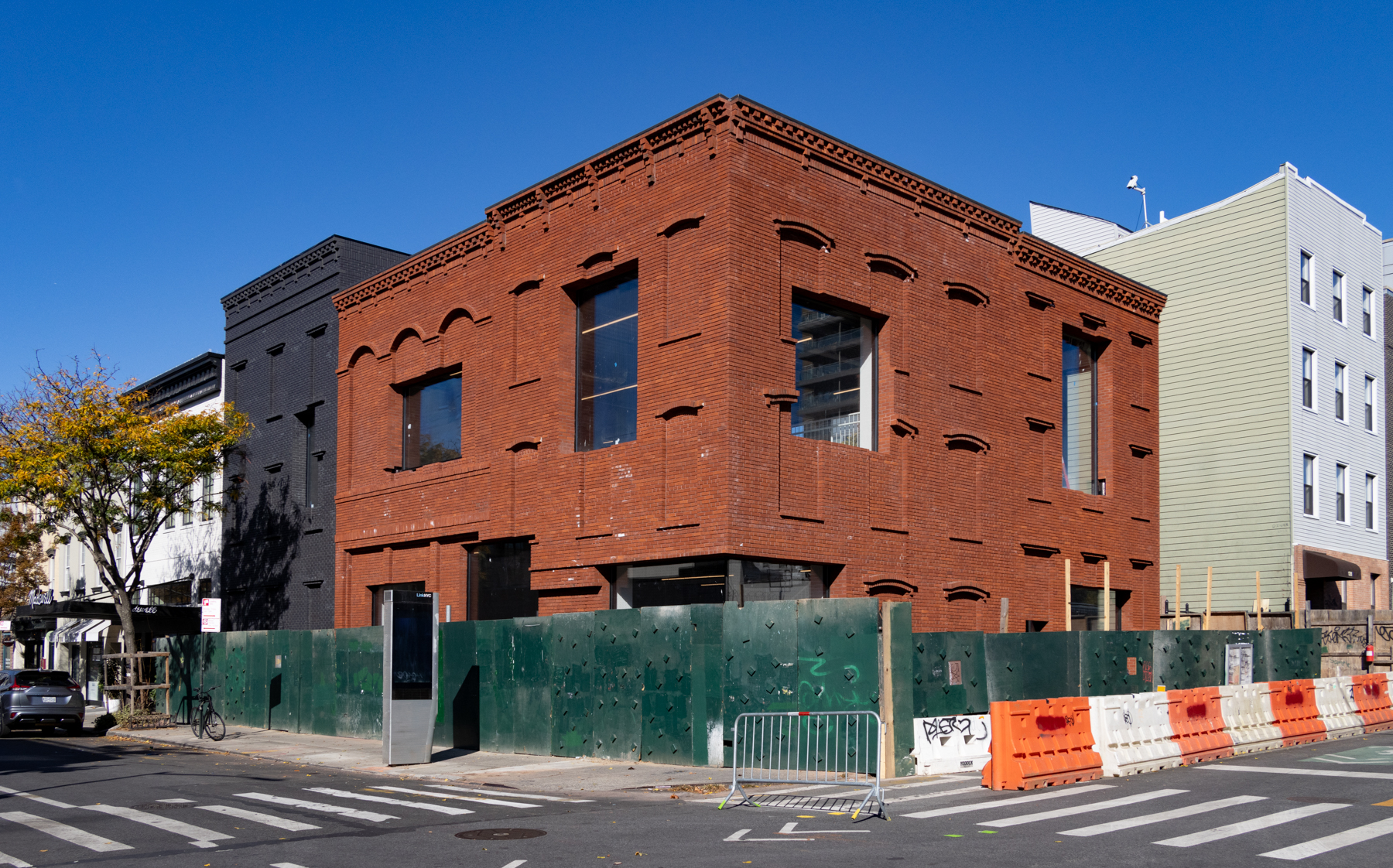

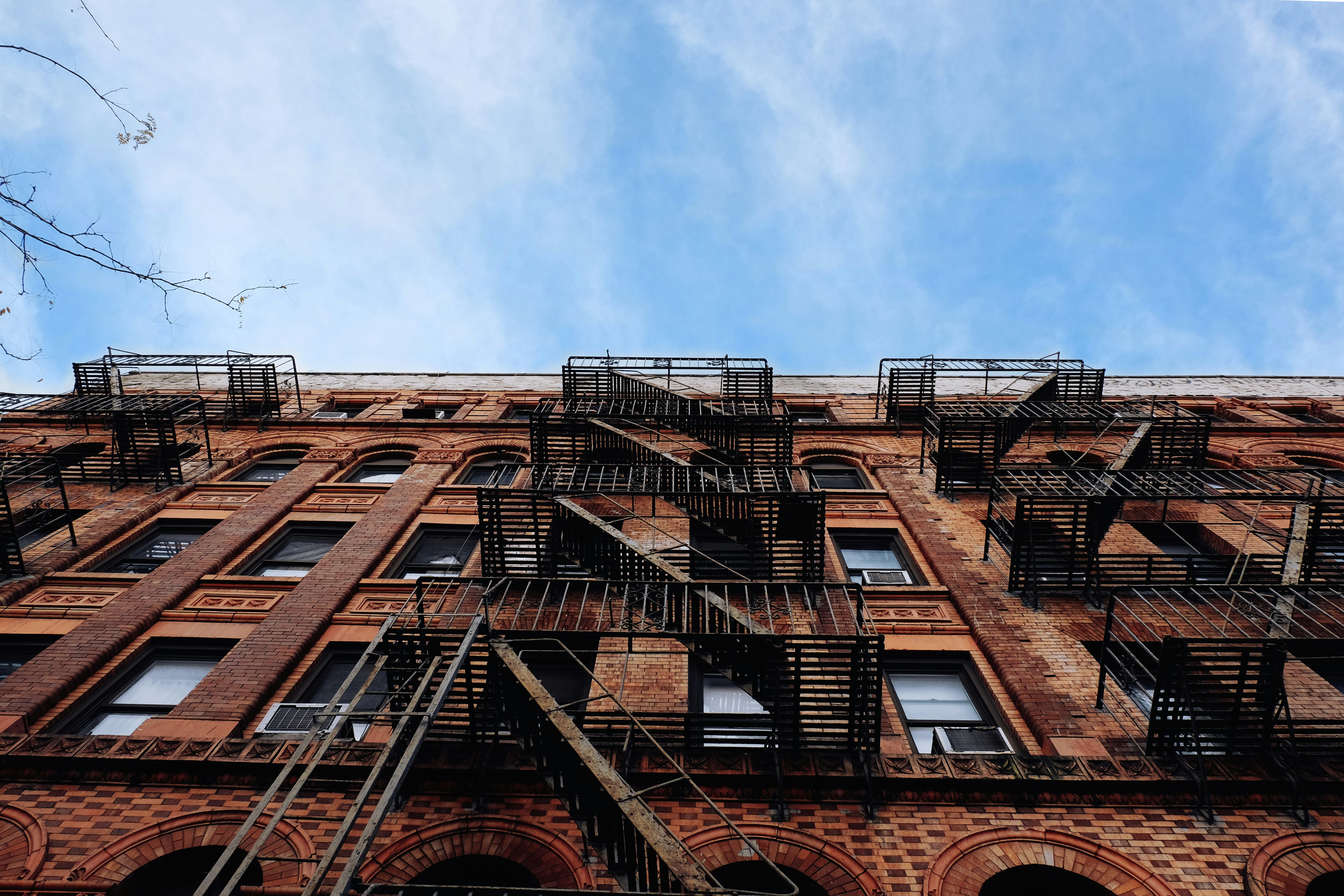
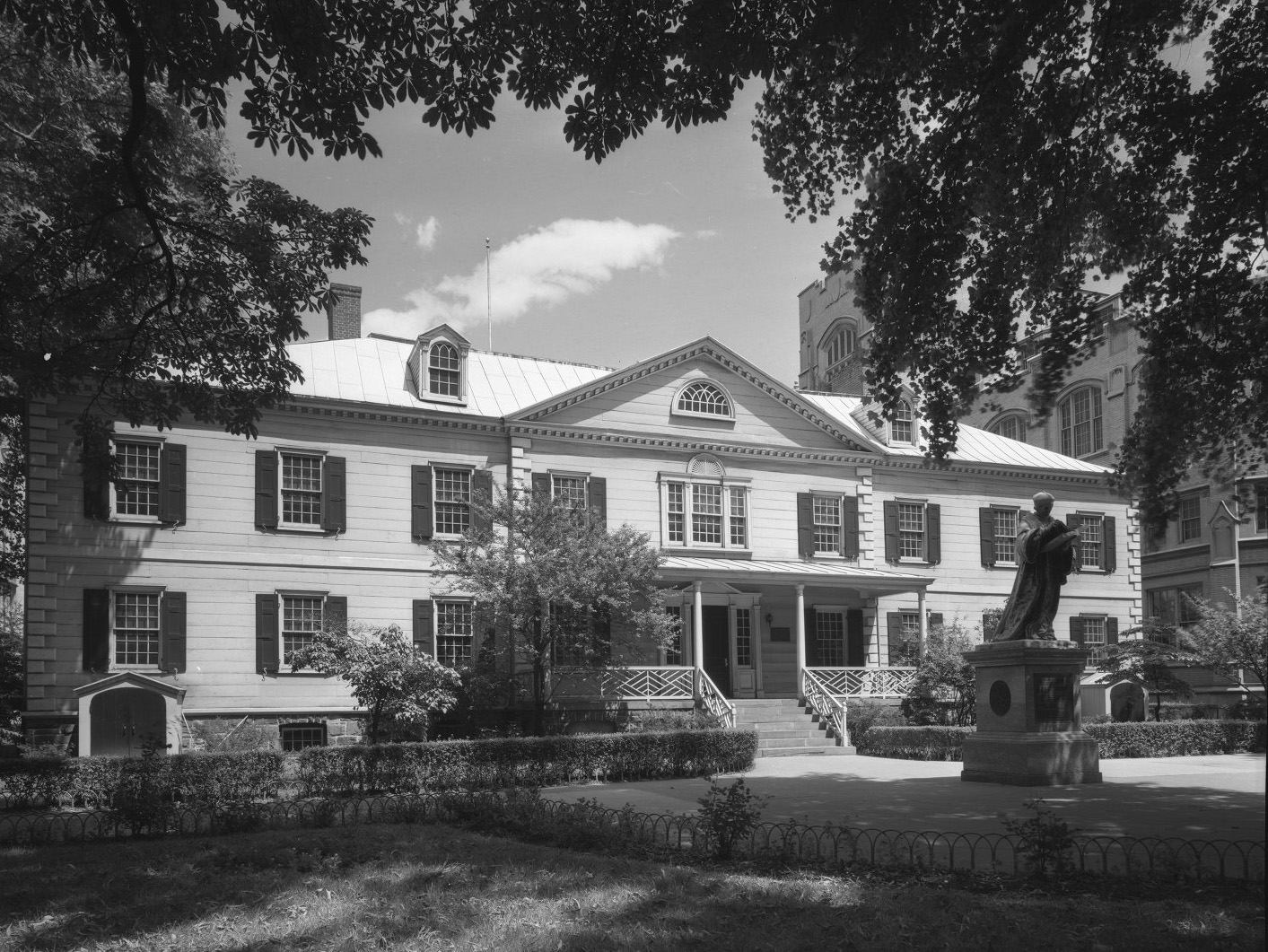




What's Your Take? Leave a Comment